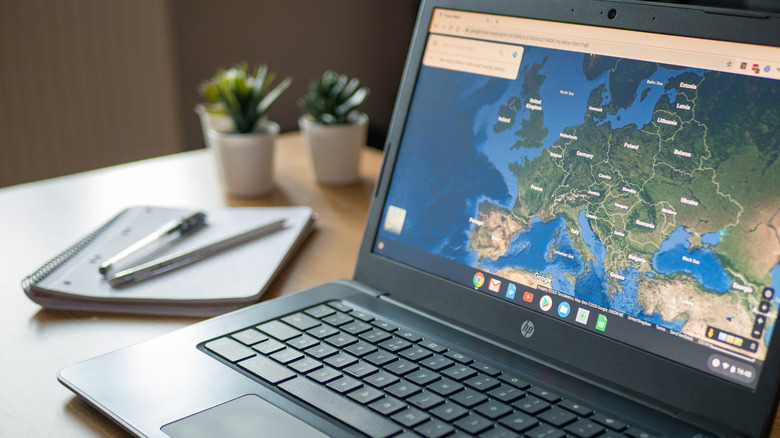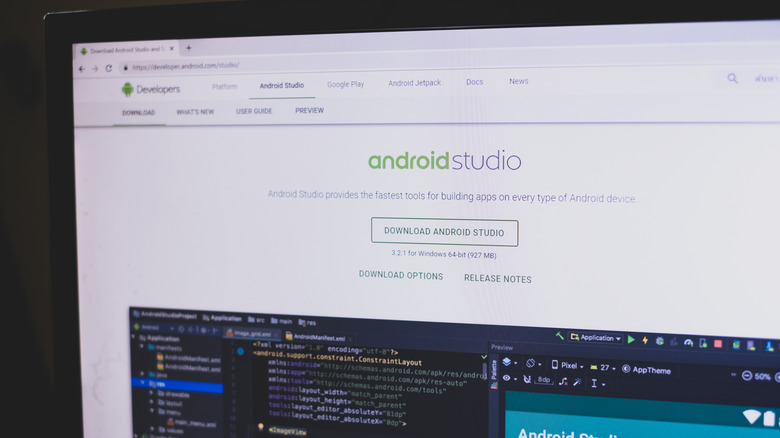Google Aims To Fix Broken Android App Experiences On Chromebook
Google still doesn't have one OS to rule them all, at least not until Fuschia actually becomes a real thing, but it does have Chrome OS. In addition to the web-centric operating system, the platform also supports running Linux software and, more importantly, Android apps. The latter has been a long time coming, but the experience is less than ideal, though not through any fault of Chrome OS itself. Android apps don't behave properly on anything but phones, including tablets.
Google has been pushing hard to change that undesirable situation, and an upcoming release of its official Android development tool will give developers fewer excuses not to make sure their apps work properly on larger screens like Chromebooks, no matter the app's window size. Even though tablets existed long before smartphones, Android was naturally designed for devices with very small screens. It is optimized to show only a limited number of items on the screen and only one "page" of the interface at a time, taking advantage of the limitations of a small handheld device to the point that it's one of its strengths. After all, you don't get distracted too much if you don't have many things going on at once.
Android tablets challenged those assumptions, and to its credit, Google did provide ways for Android apps to support larger screens. Developers, unfortunately, weren't enthusiastic about adopting those new features, mostly because Android tablets haven't exactly been a profitable market. The situation, however, is a bit different when Chrome OS is involved, as it saw a 50% rise in Android app use last year (via ChromeOS.dev) — and despite that, the apps continue to misbehave even on that platform.
Android Studio Virtual Desktop is inbound
One of the biggest problems with Android apps on tablets — and especially on Chrome OS — is that they don't properly change their UI and contents when the window is resized. That's because developers don't have an easy way to test that behavior unless they already own a Chromebook for testing. Even then, they can only test that after they have deployed the app to the device rather than in the middle of development. This is the hurdle that Android Studio's upcoming "Electric Eel" release is hoping to resolve, giving developers all the tools they need to do things right.
The Desktop Android Virtual Device will act like an emulator that will let developers test how their apps will behave when the window is resized, according to Android Police. It also covers how the app will work with others in multi-widow mode, how its notifications will display, and similar considerations that aren't really a concern on smartphones or even tablets. Hopefully, this means that Android apps on Chrome OS will behave properly in the near future.
Along with Android 12L, this Android Studio feature demonstrates Google's push to get Android apps in tip-top shape for large screens, including tablets, Chrome OS, and PC modes. All these, however, still depend on developers actually putting in the work to adapt their software to use those new features. Of course, it would be in their best interests to cover as many platforms and devices as they could, especially if the use of Android apps on Chrome OS — and, soon, Windows 11 — continues to grow over the next few years.

